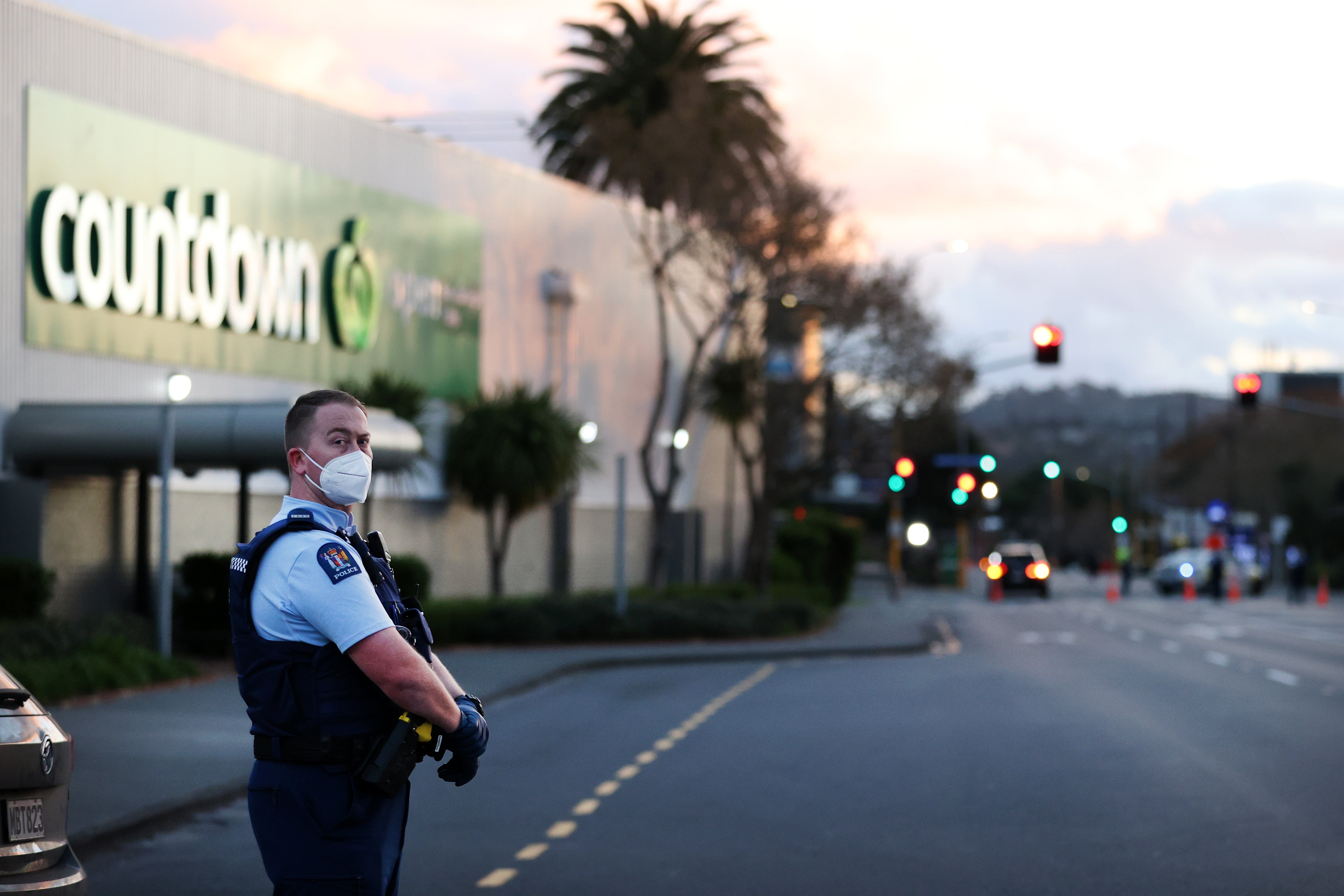Man who stabbed seven people in New Zealand supermarket named as Ahamed Samsudeen
The attacker first caught police attention in 2016

Your support helps us to tell the story
From reproductive rights to climate change to Big Tech, The Independent is on the ground when the story is developing. Whether it's investigating the financials of Elon Musk's pro-Trump PAC or producing our latest documentary, 'The A Word', which shines a light on the American women fighting for reproductive rights, we know how important it is to parse out the facts from the messaging.
At such a critical moment in US history, we need reporters on the ground. Your donation allows us to keep sending journalists to speak to both sides of the story.
The Independent is trusted by Americans across the entire political spectrum. And unlike many other quality news outlets, we choose not to lock Americans out of our reporting and analysis with paywalls. We believe quality journalism should be available to everyone, paid for by those who can afford it.
Your support makes all the difference.The man who stabbed seven people in a New Zealand supermarket has been named as Ahamed Samsudeen.
The 32-year-old was shot and killed by police after he left seven people injured in a knife attack inside an Auckland supermarket.
He had been assessed as so high risk that he was being monitored by up to 30 officers who tracked his every move in the weeks leading up to the attack.
Samsudeen, who arrived in New Zealand from Sri Lanka in 2011 on a student visa, had previously been imprisoned for three years after authorities caught him with a hunting knife and extremist videos.
But despite fears he would attack others he was released by authorities, which said they could do nothing more to keep Samsudeen behind bars.
Those concerns were realised on Friday when he stabbed seven people in an Auckland supermarket, critically injuring three.
Two more shoppers were also injured in the incident.
On Saturday, three of the victims remain in critical condition and three more are in stable or moderate conditions.
The seventh person is recovering at home. The victims ranged in age from 29 to 77.
Court documents named the man as 32-year-old Ahamed Aathil Mohamed Samsudeen, a Tamil Muslim who arrived in New Zealand 10 years ago on a student visa seeking refugee status.
He was first noticed by police in 2016 when he started posting support for terror attacks and violent extremism on Facebook.
Police twice confronted him but he kept on posting. In 2017, they arrested him at Auckland Airport.
He was headed for Syria, authorities say, presumably to join the Isis insurgency.
Police searches found he had a hunting knife and some banned propaganda material, and he was later released on bail. In 2018, he bought another knife, and police found two Isis videos.
He spent the next three years in jail after pleading guilty to various crimes and for breaching bail.
On new charges in May, a jury found Samsudeen guilty on two counts of possessing objectionable videos, both of which showed Isis imagery, including the group’s flag and a man in a black balaclava holding a semi-automatic weapon.
However, the videos did not show violent murders like some Isis videos, and were not classified as the worst kind of illicit material.
A court report warned Samsudeen had the motivation and means to commit violent acts in the community and posed a high risk.
It described him as harbouring extreme attitudes, living an isolated lifestyle and having a sense of entitlement.
Friday’s attack has highlighted deficiencies in New Zealand’s anti-terror laws, which experts say are too focused on punishing actions and inadequate for dealing with plots before they are carried out.
Prime Minister Jacinda Ardern said lawmakers were close to filling some of those legislative holes when the attack occurred. She vowed law changes by the end of the month.
Police Commissioner Andrew Coster said the law they were working under required a suspect to make the first move.
“We might have an understanding of intent and ideology, and we might have high levels of concern,” Coster said.
“But that is not sufficient for us to take any enforcement action.”
Join our commenting forum
Join thought-provoking conversations, follow other Independent readers and see their replies
Comments